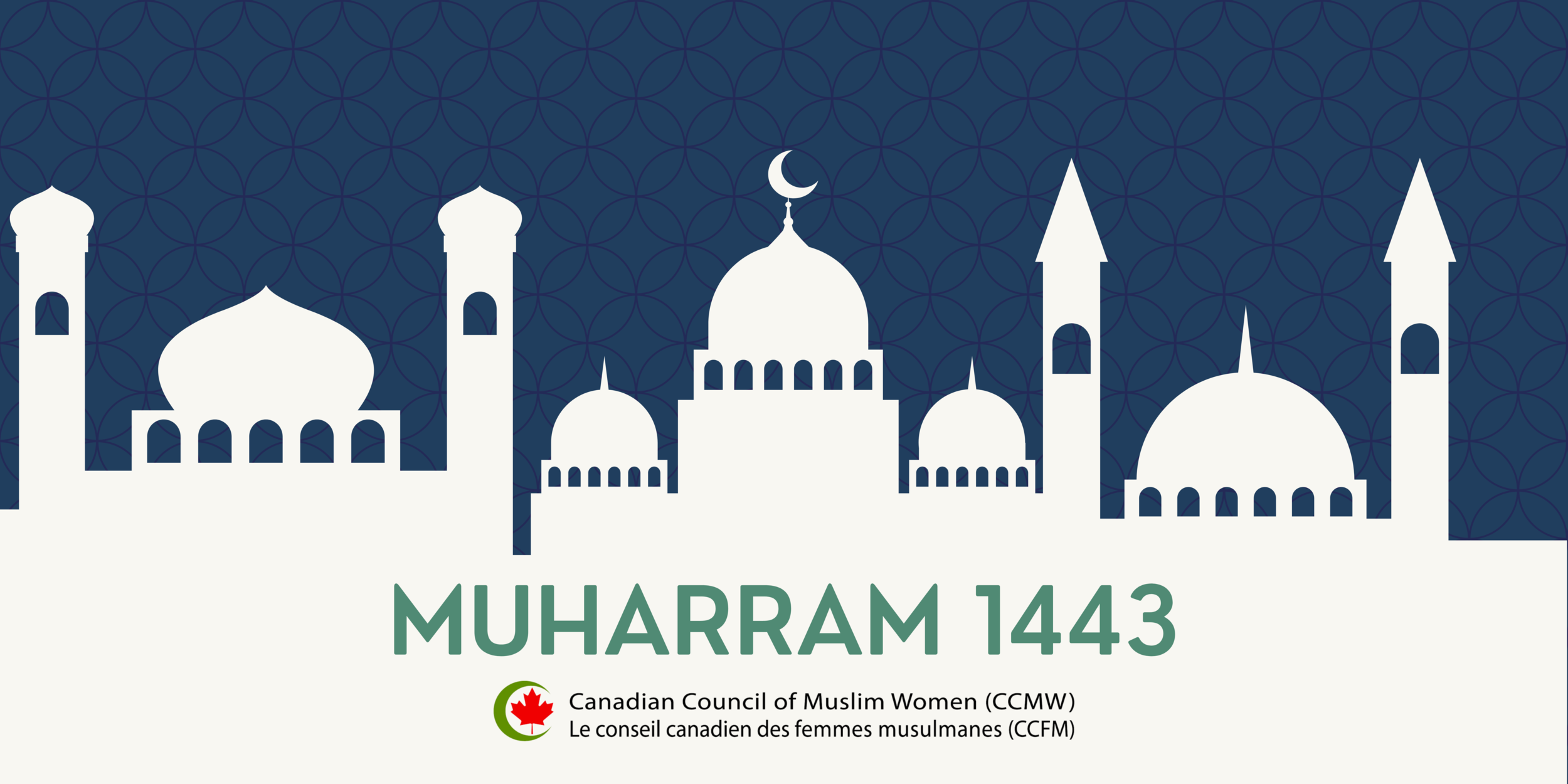Best Wishes for Islamic New Year
CCMW Montreal’s Samaa Elibyari writes about the new Islamic year in the article below.
Dear CCMW ladies and readers:
Today, Tuesday August 10, brings us a new Islamic, also called Hijri, lunar year 1443. I wish you all the best of health and wealth.
The Islamic calendar started with the migration, Hijrah in Arabic, of Prophet Muhammad, Peace be upon him, and his companions from Mecca to Medina in 622, after they were repeatedly persecuted and threatened.
Running for 354 or 355 days, it is approximately 11 days shorter than the solar, Gregorian calendar. All religious duties, such as prayer, fasting in the month of Ramadan, Hajj (pilgrimage to Mekka), and the dates of significant events, such as celebration of holy nights and festivals, are calculated according to the Islamic calendar. I remember my Arabic teacher writing on the black board, the Hijri date on the right, the Gregorian date on the left and ‘In the name of Allah, the Most Merciful, the Most Generous’ in the middle, first thing in the class.
A day in the Islamic calendar is defined as beginning at sunset, and there are 12 months per year. They are in order Muharram; Safar; Rabi' al-awwal; Rabi' al-thani; Jumada al-awwal; Jumada al-thani; Rajab; Sha'aban; Ramadan; Shawwal; Dhu al-Qi'dah; Dhu al-Hijjah.
The ones in bold, are the sacred months or inviolable months, hence designated because hunting and aggression are forbidden during their duration. Nowadays, we could call them months of peaceful co-existence with humans and animals and nature.
Muharram, the first of these months has special significance for Shi’a Muslims. The 10th of Muḥarram 680, was the day on which Al-Ḥusayn ibn ʿAlī, the Prophet's grandson by his daughter Fāṭimah, his son-in-law ʿAlī, and most of their followers were killed by Umayyad forces in the Battle of Karbala, Iraq. The mourning for these martyrs starts from the beginning of the month and culminate on Ashura, the tenth day.
For Sunnis, Ashura follows the traditions of Judaism with a day of fasting - commemorating the parting of the Red Sea for Moses and his followers to escape Pharaoh. When Prophet Muhammad, Peace be upon him, arrived in Medina, he fasted and encouraged his followers to do the same.
It is also believed that on Ashura Prophet Nuh (Noah) left the ark and came to rest on Mount Ararat. His family wanting to celebrate. With whatever was left, primarily grains, dried fruits and the like they cooked together to form a pudding, what is now called Ashura.
Turkish families have kept this tradition alive although recipes vary between regions and even families. Nowadays, Ashura a rich desert is enjoyed by families and distributed to neighbors, friends and relatives as well as the needy. It is considered as a symbol of sharing, solidarity, and love.
Some months have names that refer to seasons. Hence Safar, literally implies void or nil. Thus named because pre-Islamic Arab houses were empty this time of year while their occupants gathered food.
Rabī‘ al-awwal, the first spring, also celebrated by many Muslims, as it was the month the Prophet Muhammad, Peace be upon him, was born.
Rabī‘ ath-thānī, is the second spring. Similarly, Jumādá al-ūlá, refers to the first freezing followed by Jumādá al-ākhirah, the last freezing.
Rajab, is to respect or to honour. Here it is interesting to notice it is also related to a verb meaning “to remove”, makes sense since pre-Islamic Arabs would remove the heads of their spears and refrain from fighting.
We all know what Ramaḍān is, the month of fasting followed by the celebration of Eid Al-fitr in Shawwāl. Some extend their fast, during the first six days of Shawwal called the ‘white days’.
Dhū al-Qa‘dah, is the third ‘peaceful’ month, during which pilgrims get ready for the Hajj, the journey of a life time to Mekka, in Dhū al-Ḥijjah, meaning the month of the pilgrimage.
The date when the new Hijri year begins is determined by various techniques – including the use of scientific and astronomical calculations, or conducting an official moon-sighting exercise. The method adopted differs from country to country.
Our Islamic new year starts with commemorations and prayers and mourning. Nothing in common with New Year’s celebrations. Apart from remembering it as being a national holiday in Egypt, I miss the delicious Ashura that my grand-mother, who was of Turkish origin, used to make (in industrial quantities). All the best for the year 1443.

